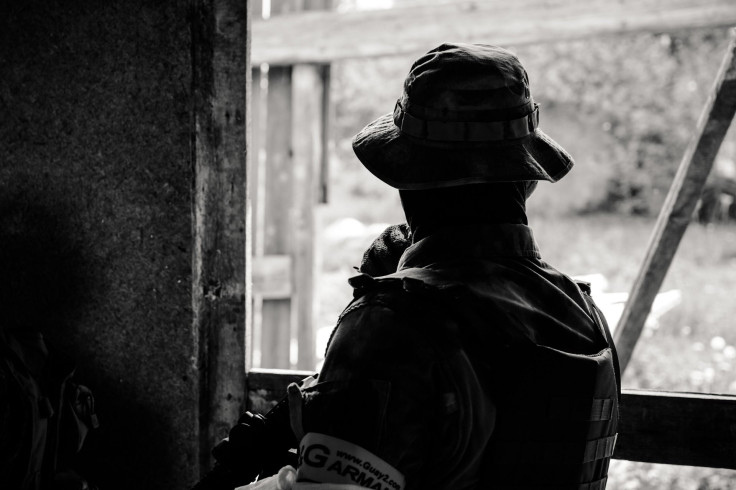Further investigations into the January 2021 May Kado massacre have unraveled more details of the extrajudicial killings that were brazenly filmed in Ethiopia's Tigray Region during the Tigray War.
According to CNN, an April 2021 probe with Amnesty International scrutinized the video clips of the January massacre, where at least 11 unarmed men were executed, leaving 39 others still unaccounted for.
The appalling content was sent to the media in March this year by the pro-Tigray media organization Tigrai Media House. It revealed harrowing details that the video was filmed on a mobile phone by "Fafi," an Ethiopian army soldier involved in the mass killing, who later turned into a whistleblower and exposed his military brigade and division.
Authorities then utilized geolocation techniques to identify the location of the killings, which was on a ridge near Mahibere Dego. Officials then secured extended footage of the atrocity.
In the new clip, Fafi is seen exchanging the phone with another soldier before taking a deadly weapon and shooting the men lined up for execution. Following the ordeal, which appeared to have no lasting impact on the offenders, the phone is then swapped back as other members of the military brigade demand to be filmed while executing the captives. They were seemingly pleased with documenting their crimes.
Despite the evidence obtained, the Ethiopian Prime Minister's Office dismissed the findings of CNN and Amnesty International's original investigation. It has since concluded that "social media posts and claims cannot be taken as evidence."
Six months following the gruesome bloodbath, two people in Mahibere Dego have since collected the national identification cards of 36 people who were killed while the other 37 people remain missing since January. It indicates the toll of the macabre offenses could have been more than double that what was initially reported.
The Ethiopian government, however, declined to acknowledge the new reports.
The landlocked country has been under mounting international ire over several reported cruelties in its war-torn northern Tigray region. The offenses are believed to amount to war crimes after thousands of civilians were reportedly killed since early November.
It can also be dated back to when Prime Minister Abiy Ahmed ordered the deployment of national troops and militia fighters from Ethiopia's Amhara region after declaring a major military operation against the Tigray People's Liberation Front (TPLF), the Tigray's former governing party.
Just recently, another airstrike struck Togoga’s busy marketplace on Tuesday, killing at least 64 people and injuring dozens more. The Associated Press noted that soldiers were found blocking medical teams from reaching the wounded or from transporting them to hospitals in the regional capital Mekele, some 37 miles away.
While Ethiopia’s military has claimed responsibility for the airstrike, it has rejected witness claims that dozens of civilians were caught up in the air raid. Army spokesman Colonel Getnet Adane asserted that the operation only “dismantled” the rebel armed forces loyal to the TPLF.
“We do not accept that this operation targeted civilians,” he said.
Adane claimed that the TPLF fighters had flocked to the region to commemorate Martyrs’ Day when the air raid occurred and that his soldiers particularly targeted the rebels who were reportedly dressed in civilian clothes, according to Aljazeera. However, Tuesday's survivors of the airstrike are challenging the narrative of the Ethiopian government.
The United Nations and the European Union have again expressed their concerns for Ethiopia, calling for a ceasefire in its northern Tigray region. The airstrike occurred just a day after much of Ethiopia voted in a national election that 2019 Nobel Peace Prize winner Ahmed has pioneered as part of his political reforms.

© 2025 Latin Times. All rights reserved. Do not reproduce without permission.





